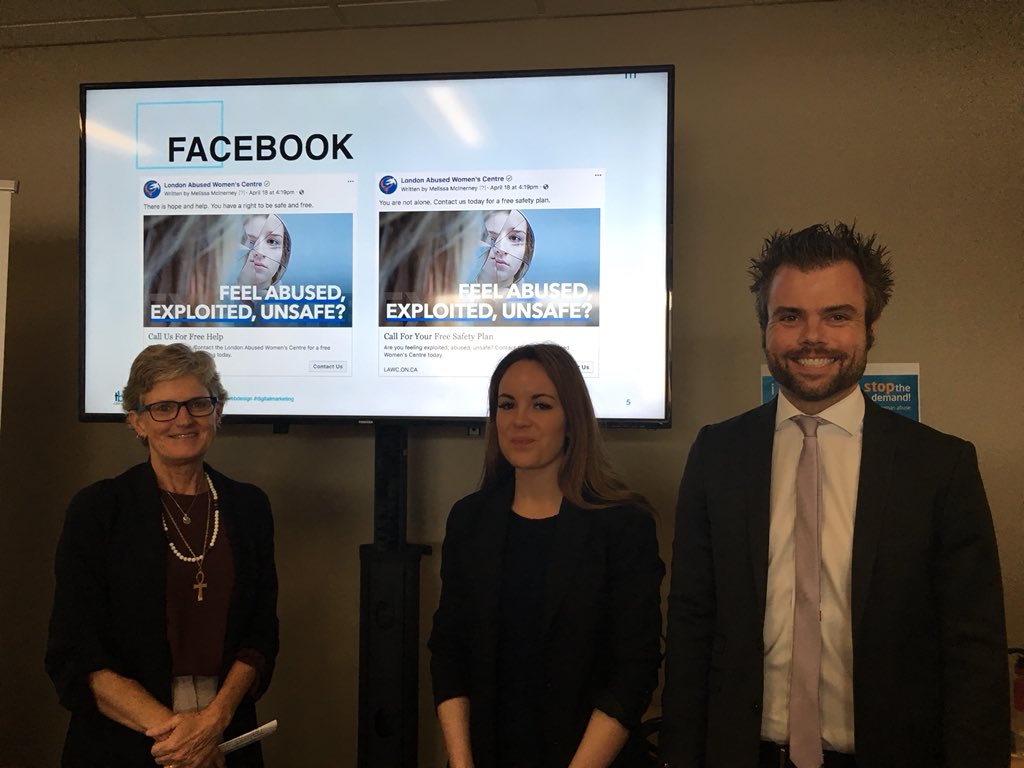A months-long digital public awareness campaign aimed at teaching people in the London area about human sex trafficking generated nearly one million impressions online, according to the head of the London Abused Women’s Centre (LAWC), the agency that spearheaded the campaign.

Announced in May, The Phoenix Campaign was hailed as one of the first public awareness campaigns about human trafficking, partly focused on educating London and area men. For the campaign, LAWC joined forces with Youth Opportunities Unlimited (YOU), the Salvation Army Correctional and Justice Services, and the London-based marketing agency tbk Creative.
For four months, the campaign saw two sets of ads go up on social media targeting Facebook users within a specific distance of London — one targeting men aged 18 to 65, and one targeting women aged 18 to 25.
“We wanted to market specific messages to both those who are sex purchasers, as well as to those who are being trafficked or prostituted,” said Megan Walker, executive director of LAWC, in an interview Friday on 980 CFPL’s The Craig Needles Show.

Get breaking National news
The Facebook ad targeting men advertised about the consequences of buying sex, while the ad targeting women communicated how those in an abusive, unsafe, or exploitative relationships could find help leaving those partnerships.
The campaign also involved purchasing ad space through Google AdWords so similar messaging would show up on the Google search results of users who looked up specific keywords or websites. (For example, those looking up websites known for advertising sexual services would see an ad about the consequences of buying sex, including information about Canada’s prostitution laws.)
“The overall campaign, in a four-month period of time, in just London and immediately around the city of London, generated almost one million impressions, which is pretty fantastic,” Walker said. An impression is a metric to measure the number of times an ad is on the screen of the targeted audience.
“We had 117 women that saw the ad, that clicked on our phone number for the ad, and reached out for help. That is just astonishing to us,” she said. “When you consider how difficult it is for these women to reach out for help, we know this campaign made a difference in their lives and made that possible.”
“The level of violence and trauma [victims] face, combined with mental health and substance abuse issues, make it very difficult for them to reach out in the first place.”
The campaign, which cost around $14,000, exceeded all of their expectations, Walker said, noting that at a cost-per-call of about $120, it was well worth it.
“If we can help these women, we know that we can get them out of this situation, it creates less stress on communities and on families, and that’s a really positive thing.”
Walker said they are hoping to roll out a similar provincewide campaign by December.
“Depending on the results of that, we would like to take it across the country.”












Comments